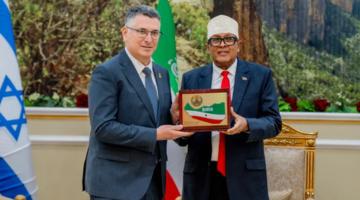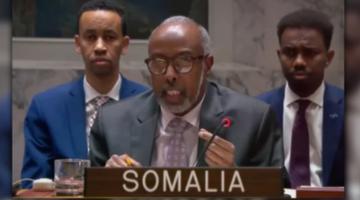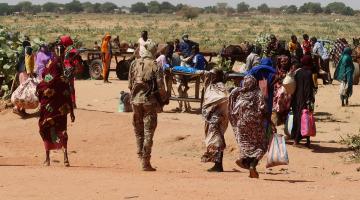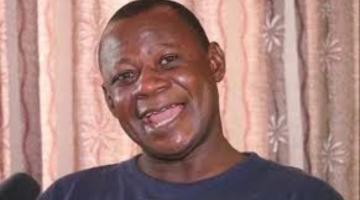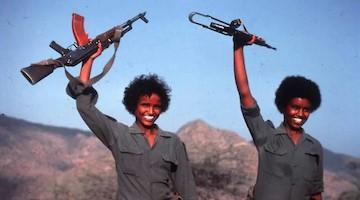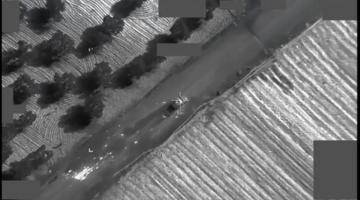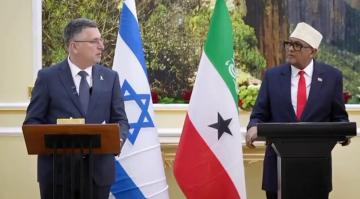Senator Ted Cruz has written an open letter urging Trump to recognize Somaliland, causing jubilation among Somaliland secessionists.
On August 14, Senator Ted Cruz published an open letter urging Donald Trump to recognize Somaliland, a secessionist state within Somalia, and proposing an alliance between the US, Somaliland, Israel, and Taiwan in the new scramble for Red Sea assets.
Cruz, who chairs the Africa Subcommittee on the Senate Foreign Relations Committee, conceives the continent solely in terms of his own hegemonic presumptions. He read the letter and elaborated on his podcast “The Verdict,” which Somaliland secessionists jubilantly posted to social media.
He notes Somaliland’s longstanding alliance with Taiwan, which is recognized as a state by only 12 tiny countries, whose numbers keep shrinking due to China’s economic prowess. In his New Cold War delirium, he imagines that Somaliland can somehow help the US stop China in Africa.
He’d have greater influence by urging Trump to stop shooting the US in the foot with the crazy, trade-stifling patchwork of tariffs he’s imposed on Africa. China responded by lifting all tariffs on the entire continent except tiny Eswatini, the only African nation that recognizes Taiwan.
In his letter to Trump, Cruz seemed unaware that the Somaliland government hasn't been in control of a large part of the territory within the borders it claims since August 2023, or that Somalia now recognizes it as a Federal Member State, the Northeastern State of Somalia.
However, several days later he vaguely referred to ‘anti-Somaliland groups” while renewing his New Cold War raving in the Senate:
As if the Chinese Communist Party’s political interference wasn’t enough, there are reports that the support China provides to the Somali government makes its way to anti-Somaliland groups opposing Somaliland.
Let me be clear. China is leveraging Somalia against the pro-US, pro-Israel, pro-West Somaliland because of Somaliland’s relationship with Taiwan. How should the United States approach this challenge and similar efforts by China?
What’s he smoking? According to foreignassistance.gov, the US has provided $1,207,960,175 to Somalia since 2001, including $402,572,656 this year. Are we supposed to believe that this is somehow earmarked to serve US interests, and that whatever aid China provides is somehow earmarked for the Northeastern State unionists?
Cruz also cites Somaliland’s mineral reserves as a way for the US to get a leg up in the global resource wars (which the US is losing as China builds infrastructure and the US squanders resources on the US Africa Command).
Cruz said that Somaliland would allow the US to build a military base on the Gulf of Aden, at the mouth of the Red Sea, in exchange for recognition, but Somaliland has already proclaimed that it’s doing everything it possibly can to collaborate with the US militarily. The US doesn’t need to risk stirring a hornet’s nest, triggering secessionist claims all over the continent, to build a base in Somaliland’s Berbera Port.
Strengthening ties with Israel
Cruz also argues for recognizing Somaliland because it has indicated its willingness to strengthen ties with Israel and voiced support for the Abraham Accords, the series of agreements signed in 2020 to end hostilities between Israel and a handful of Arab nations.
Some Somalianders were quick to applaud on their social media accounts, posting composites of US/Israeli/Somaliland flags, but would this really fly with the majority? Somalis and Somalilanders have long supported Palestine, and they resoundingly rejected Trump’s proposal that they host displaced Gazans.
Israel has long eyed a military base on the Gulf of Aden, from which to surveil and conduct operations against Iran and Yemen’s Ansar Allah. At the end of July, a graduate student at George Washington University’s Elliott School of International Affairs, raised the possibility in an essay, “Gateways to the Red Sea: The case for Israel–Somaliland normalization,” on the Atlantic Council blog.
Wouldn’t Somaliland risk internal unrest by offering Israel a military base? Somaliland’s population is predominantly Muslim, and again, many sympathize with the Palestinian cause. Wouldn’t they be outraged?
Ten months ago, in a video editorial, acute African commentator DJ Bwakali explained that this would be a recipe for disaster:
Israel is salivating over Somaliland. They want to build a military base there. The United Arab Emirates, which already has a military base there, is shepherding this deal due to a variety of geopolitical and economic reasons. Positioned perfectly on the Gulf of Aden, near the Bab el-Mandeb Strait, Somaliland holds a key location coveted by global powers. Israel, with its lack of strategic depth, sees Somaliland as the perfect place to counter Iran-backed Houthis and expand its influence across the Horn of Africa.
But there’s a massive catch. Somaliland would be inviting chaos by allowing Israel to establish a military base on its soil. First, regional tensions will explode. If Somaliland aligns with Israel, it effectively joins the Israel/Iran proxy war. Iran-backed Houthis, already entrenched in Yemen, will see Somaliland as an enemy outpost. Strikes, sabotage, and militant attacks would follow.
Somaliland’s current peace would be shattered, and its role as a stable, independent region could be consumed by the broader Israeli/Iran conflict. Regional powers like Saudi Arabia and Turkey might also see Somaliland as part of a power struggle, further destabilizing not just Somaliland but the entire Horn of Africa region.
It’s actually difficult to argue that Somaliland is currently a “stable, independent region,” given that it’s lost control of much of the territory it claims, with military forces on either side of an uneasy border. However, a military base on the Gulf of Aden would threaten even the peace of its capital, Hargeisa.
Ann Garrison is a Black Agenda Report Contributing Editor based in the San Francisco Bay Area. In 2014, she received the Victoire Ingabire Umuhoza Democracy and Peace Prize for her reporting on conflict in the African Great Lakes region. She can be reached at ann@anngarrison.com. You can help support her work on Patreon.

